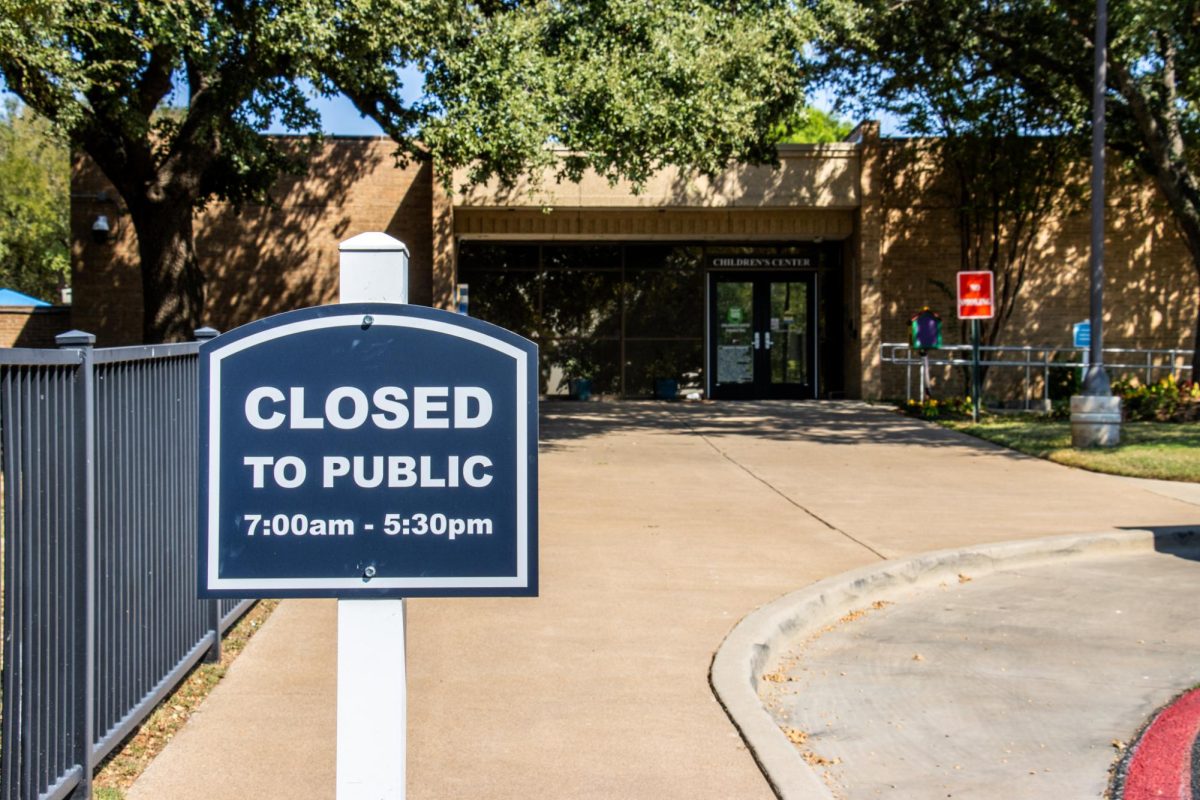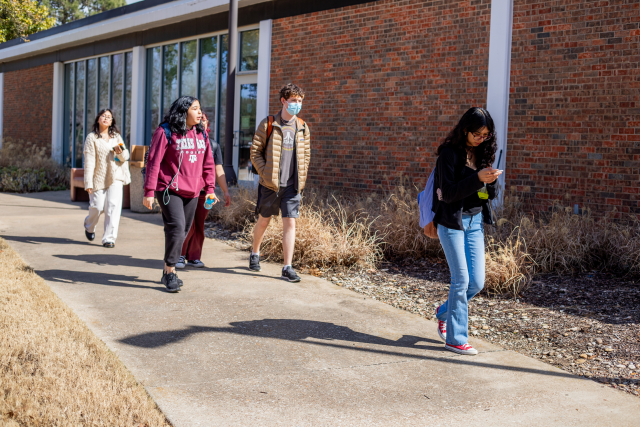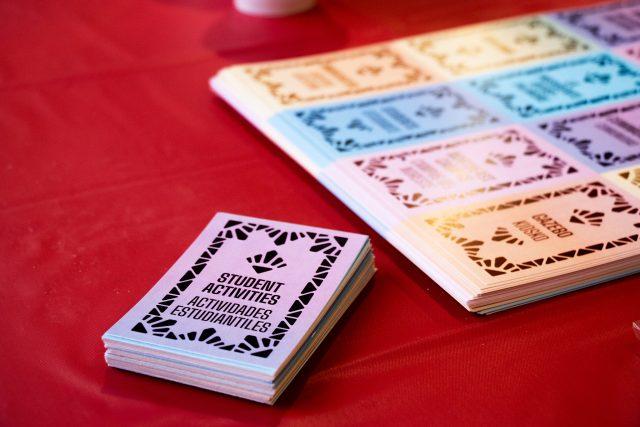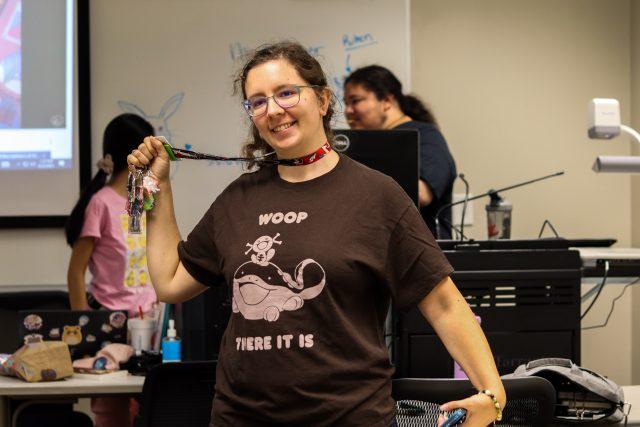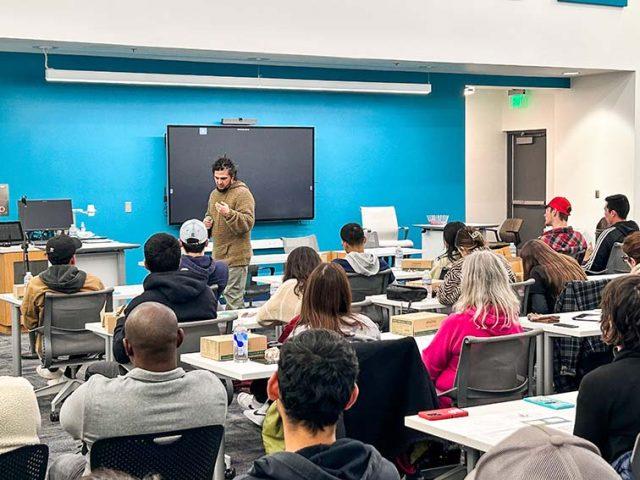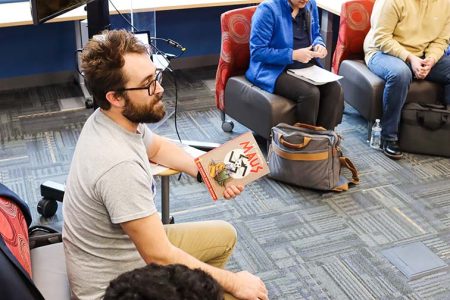
Ariel Desantiago/The Collegian
OLLA MOKHTAR
campus editor
olla.mokhtar@my.tccd.edu
On Monday, Feb. 20, the first meeting of the Banned Books club discussed the book “Maus” by Art Spiegelman and why banned books are important to explore at TR campus’ Fish Tank room.
“Maus” is a graphic novel that narrates the story of a Holocaust survivor and the relationship between the survivor and his son portraying Jewish people as mice and the Nazis as cats.
The book has been banned in a number of counties and countries.
For instance, according to CNN, in McMinn County, Tennessee it was banned due to language and nudity concerns. According to NPR news, as well, another ban was made in Russia because of the book’s cover art representing the Jewish people as mice, huddling beneath a “cat-like caricature of Adolf Hitler” with a swastika in the background.
According to adviser and associate professor of English Andrew Spencer, its ban is due to Russia’s effort to rid the country of Nazi propaganda despite the content of the book being about the terrible acts of the Nazis.
Students gathered in the FIsh Tank room across from the library and shared their thoughts about the graphic novel, one of which was TR student Hannah Williams.
“Sometimes as a people, we’re like ‘Oh they’re against us’, but then we go against somebody who they’re also against,” she said. “We could all stand and unite to fight a larger problem but were so turned against each other that we can’t even see our own hypocrisy.”
To TR student Samantha Goldblatt, the book’s story was more personal.
“I’m Jewish and it was really nice seeing a story about the Holocaust and that there were people in it with their own stories and their own lives,” she said.
Spencer connected the plot of the book “Maus” to the importance of having the Banned Books club.
“Part of the point of this club is to ask questions we have and be willing to have an open and honest conversation,” he said. “I’ve heard multiple people say ‘It’s terrifying to humanize the Nazis.’ I think it points back to us, we are capable of that kind of horrific thing which I feel speaks to why we have to still read stuff like this, rather than saying ‘oh it’s too horrific so we need to suppress it.’”
To the senator of the Banned Books club, Isabel Arroyo the books are chosen by the members to support their goals as an organization.
“When the club adviser Dr. Andrew Spencer mentioned the club being at risk of dissolving, we decided to make a strong plan to make the club a success for this spring semester,” she said. “This of course gave us a great outcome during the first meeting.”
Arroyo believes discussing banned books is important to read as Americans.
“The club is important as we see books challenged by institutions throughout our history up to today,” she said. “Our purpose is to uphold the principle of freedom of speech through thoughtful inquiry and analysis of these books.”
She recognised that it may seem like something daunting but is still excited for the future of these meetings.
“The name can sound intimidating for some, but in reality this is just a book club like any other with the exception of reading these books deemed as bad in the past,” she said. “It is also learning the context of the time period when they were banned and how society has acted upon these events.”
TR student Jeanne Lindsay believed this club was a good way to make friends that share the same interests.
“Although this was my first meeting, I think it is important for places with many people that congregate on a regular basis to break into smaller groups with common interests at will,” Lindsay said. “Finding a group of people that share their own common interests can foster ongoing relationships and a sense of belonging.”

























